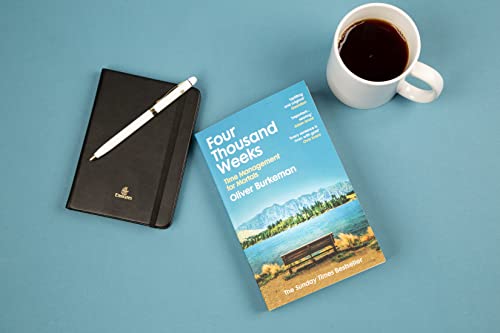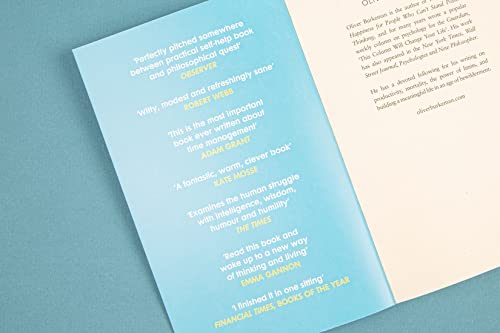Customer Services
Copyright © 2025 Desertcart Holdings Limited













Buy Four Thousand Weeks: Time Management for Mortals by Burkeman, Oliver online on desertcart.ae at best prices. ✓ Fast and free shipping ✓ free returns ✓ cash on delivery available on eligible purchase. Review: This is an insightful and invaluable conversation about time--not so much managing it as embracing this precious and finite resource. Oliver Burkeman explores why (and how) to let go of "productivity" and instead explore the relationships and activities that mean the most to us. While hard choices await, so does freedom and peace of mind. The book is written in small, readable chunks. I love it. Review: A really good book. It came at the right moment when I was so deep in the efficiency trap. Uncomfortable but very necessary truth.
| Best Sellers Rank | #1,613 in Books ( See Top 100 in Books ) #5 in Literary Movements & Periods #6 in Time Management #16 in Social Psychology & Interactions |
| Customer reviews | 4.5 4.5 out of 5 stars (3,170) |
| Dimensions | 12.9 x 1.8 x 19.8 cm |
| Edition | 1st |
| ISBN-10 | 1784704008 |
| ISBN-13 | 978-1784704001 |
| Item weight | 202 g |
| Language | English |
| Print length | 288 pages |
| Publication date | 7 April 2022 |
| Publisher | Vintage |
R**.
This is an insightful and invaluable conversation about time--not so much managing it as embracing this precious and finite resource. Oliver Burkeman explores why (and how) to let go of "productivity" and instead explore the relationships and activities that mean the most to us. While hard choices await, so does freedom and peace of mind. The book is written in small, readable chunks. I love it.
N**A
A really good book. It came at the right moment when I was so deep in the efficiency trap. Uncomfortable but very necessary truth.
G**O
Worth reading
T**K
After unpacking, I have opened the book and some pages fell out... besides that delivery was fast and overall quality of book looks good....
A**A
If you live by your to-do lists and are in a constant anxious state to get more of it done, you need to read this book. It's not preachy or "self-helpy" at all, it just tells you how it is: you have about 4000 weeks on this planet. Are you going to spend it as a slave to a perfect future that will never exist, or are you going to start living right now?
Trustpilot
1 day ago
1 week ago